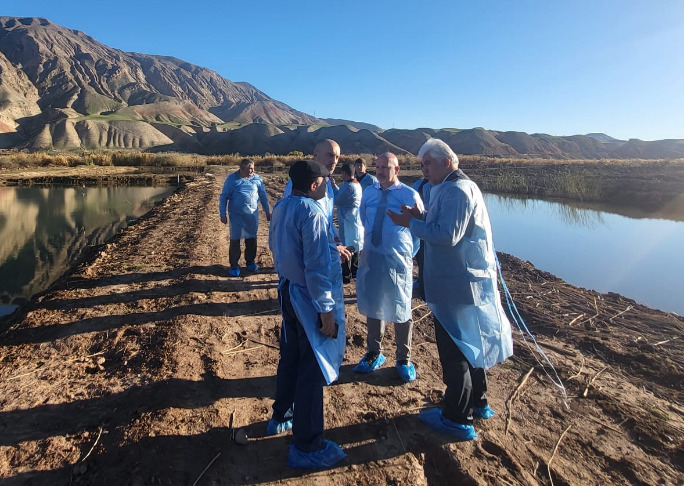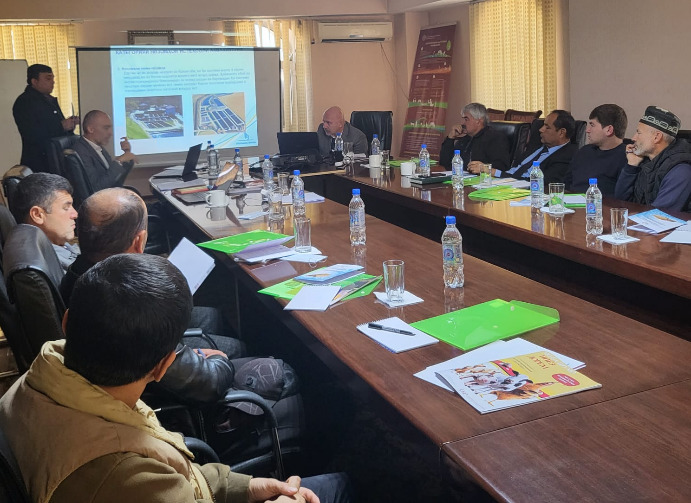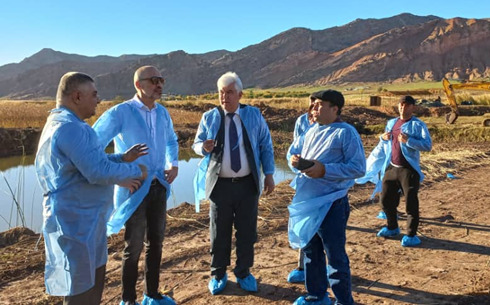Two biosecurity training in fish farms were held in Tajikistan (Khatlon and Vahdat districts) from 22 to 23 November 2022 under the AMR Multi-Partner Trust Fund (MPTF) Project: “One Health” capacity building to support priority actions for combatting AMR in Tajikistan”.
Around ten specialists participated in each training, including fish farm workers and one representative of the Committee for Food Security under the Government of the Republic of Tajikistan (CFS). Training courses consisted of two parts: theoretical (presentations) and practical with on-site visits to the fish farm in each district.
The training was held by the international expert on fish pathology from the Istituto Zooprofilattico Sperimentale dell’Umbria e delle Marche (IZSUM) Dr Francesco Agnetti.
The participants were asked to take a test designed by Dr. Agnetti to assess their knowledge and understanding of biosecurity measures in aquatic animal farms.
The training was dedicated to the following topics based on the biosecurity activities stated in WOAH Aquatic Animal Health Code:
Two aquatic animal farms (carp and trout) were visited right after the theoretical part of the training in two districts, where general biosecurity measures on the farm were observed. The trout farm showed a high standard of health and welfare of fish.
Among other subjects, the participants discussed the difficulties in finding enough specialists in fish pathology that can help in implementing these measures. The region faces challenges and there are gaps in aquatic animal health and welfare, therefore, a project such as the MPTF is valuable in this field. It is also very important to implement the WOAH Aquatic Animal Health Strategy in Central Asia.
The training reinforces how important biosecurity measures are to reduce the risk of pathogens contaminating a farm or spreading between farms. This will lead to safer animals and more prudent use of antibiotics. To highlight this, a brief presentation was delivered at the beginning of the training by Dr Mario Latini, technical assistant of WOAH Sub-Regional Representation for Central Asia, to introduce AMR awareness materials translated into Tajik that were distributed to participants just within World Antibiotic Awareness Week.
At the end of the training, Dr Mario Latini and Dr Francesco Agnetti gave an interview about the training which is available here.


